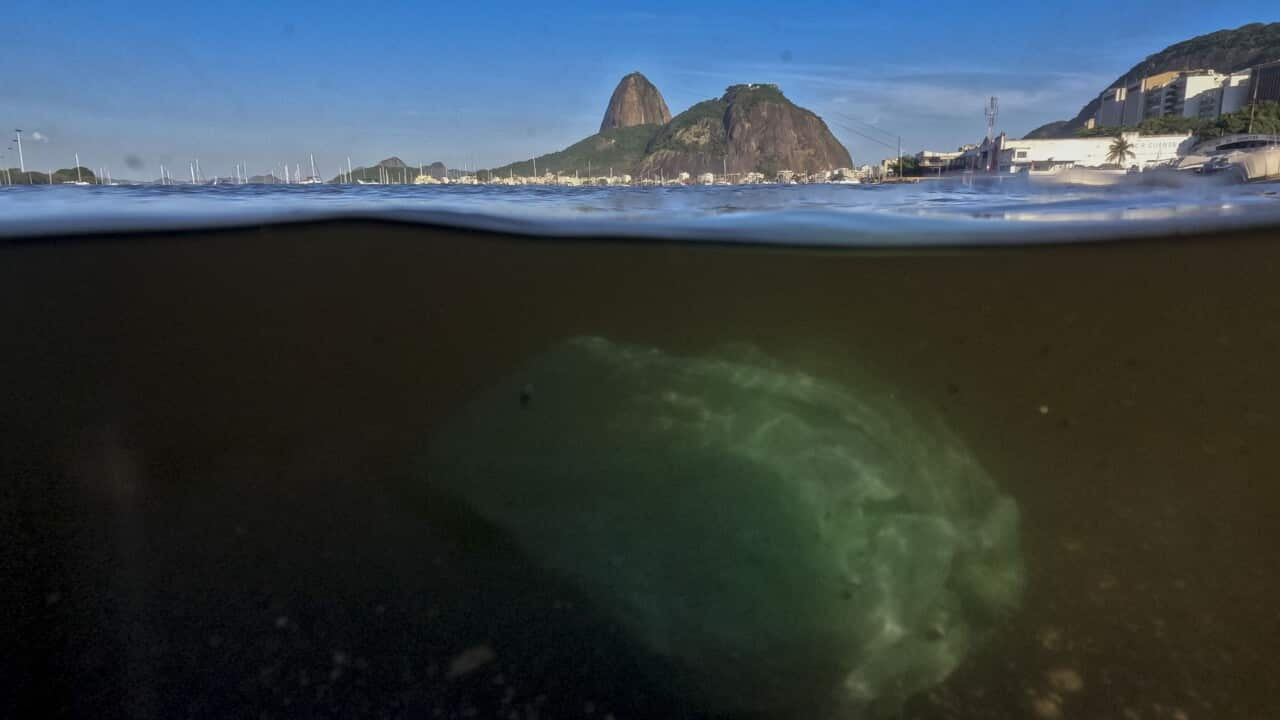TRANSCRIPT
Protesters in Tel Aviv and across Israel are demanding a hostage deal, accusing Prime Minister Netanyahu of prolonging the conflict for political gain.
The protests escalated on Sunday after six Israeli hostages were found dead in a Hamas tunnel in southern Gaza.
Tens of thousands blocked Tel Aviv's main highway, urging Mr Netanyahu to secure a ceasefire with Hamas to bring the remaining captives home.
This was the largest demonstration across 11 months of war.
Israel's largest trade union called a 24-hour strike, enabling more people to join.
However, Mr Netanyahu refuses to compromise on keeping troops in the southern Gaza border area, which he insists is crucial for controlling a key Hamas supply route.
The Philadelphi corridor, a critical area on Gaza's border with Egypt, remains a major point of contention, with Hamas rejecting any Israeli presence, while Mr Netanyahu insists on maintaining control to prevent weapon smuggling.
“This (Philadelphi) corridor is different from other corridors, from other places, it is central, it determines our entire future. Its importance to us is great, but the world that wants the war to end, the last thing it wants is for us to enter it, and immense pressure will be put on us.”
Meanwhile, the UK has suspended 30 out of 350 arms export licences to Israel, citing a "clear risk" the equipment could be used to violate international law.
UK Foreign Secretary David Lammy made the announcement in Parliament.
"Mr Speaker, as concern at the horrifying scenes in Gaza has risen, many in this House, as well as esteemed lawyers and international organisations, have raised British arms export licensing to Israel. ... It is with regret that I inform the House today, the assessment I have received leaves me unable to conclude anything other than that for certain UK arms exports to Israel, there does exist a clear risk that they might be used to commit or facilitate a serious violation of international humanitarian law."
The suspension includes parts for military planes, helicopters and drones, along with items used for ground targeting.
It does not include UK-manufactured parts for the F-35 fighter jets that Israel uses to strike Gaza.
Mr Lammy stressed that the UK still supports Israel's right to self-defence, and this does not amount to an arms embargo.
"This government is not an international court. We have not and could not arbitrate on whether or not Israel has breached international humanitarian law. This is a forward-looking evaluation, not a determination of innocence or guilt. And it does not prejudge any future determinations by the competent courts. But facing a conflict such as this, it is this government's legal duty to review export licences."
Israel's Defence Minister Yoav Gallant posted on X to say he was "deeply disheartened" by the move, while Foreign Minister Israel Katz warned the decision sends a problematic message to Hamas and Iran.
Meanwhile, Israel has killed at least 48 Palestinians in the last three days as U-N officials attempt to distribute polio vaccinations to children in the besieged enclave.
While there have been no reported attacks in vaccination zones, Israel has continued striking inside Gaza City and the historic refugee camps of Burejj and Nuseirat.
United Nations Relief and Works Agency spokesperson Louise Wateridge says an immediate and lasting ceasefire is needed if the campaign is to succeed.
“It's far too dangerous for them to travel, to move; there is ongoing fighting. There were a lot of strikes this morning and through the night. So, the fighting has not stopped by any means. There are some pauses throughout the day, but it's not guaranteed. We don't have guaranteed safety to people, and we really need that to reach all the children to get that 90 percent success rate.”
More than 80,000 children have now received their first dose of the polio vaccine on the second day of the campaign.
This comes as Israeli operations persisted in the West Bank city of Jenin on Monday, marking the fifth day of intense conflict in the Palestinian territory.
Numerous families have fled the Jenin refugee camp during what is now Israel's deadliest operation in the West Bank since the war in Gaza began last October.
Israel says the raids across the northern West Bank, which have resulted in at least 20 deaths, are intended to prevent future attacks.













